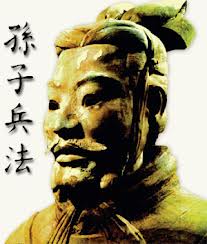You Are Worth Loyalty – So Who’s Your Bannerman?

Your Bannerman carries your standard into battle, is devoted to you, and is loyal to your cause. Photo from moddb.com.
At a certain point in your Tribe-formation, you begin to get loyalty.
People actually begin to identify with you; with your message and your vision.
Spontaneously, they offer their support. They carry your standard into battle.
Not because you’re paying them, or because you’ve signed some Joint Venture Partnership (JVP) agreement.
Rather, these people find themselves in alignment with your leadership.
Using a very medieval (or Game of Thrones) term, these people are your bannermen.
This may actually come as a surprise.
Emerging from the Wilderness
You know that song, Keep Your Eyes on That Prize:
The only thing I did was wrong,
Was staying in the Wilderness too long.
Read more: Bruce Springsteen – Eyes On The Prize Lyrics | MetroLyrics
You may have – for a long time – been so much of a Wanderer; so much so that you believed yourself to live completely on the outskirts of society.
But – as the song goes in The Lord of the Rings:

All That Is Gold … , read by Sir Christopher Lee, who played Saruman in the movie trilogy, The Lord of the Rings.
All that is gold does not glitter,
Not all those who wander are lost;
The old that is strong does not wither,
Deep roots are not reached by the frost …
(From The Fellowship of the Ring, Book 1 of the Lord of the Rings Trilogy, by J.R. Tolkien. For details, see The LoR Wiki, All that is gold does not glitter.
As you emerge from Wandering, start forming your Tribe, and become a strong leader, people form around you – not just passively, but actively.
Some of these people become allies.
Some become your Bannermen.
Side Note: Your Wanderer Stage Is Essential
In the process of becoming a true leader, your Wanderer stage is essential. It’s where you separate yourself from cultural norms, go into the wilds, and figure out for yourself who you are, what you’re doing, and what you stand for.
Carol Pearson, in her significant and groundbreaking work, The Hero Within, was the first to point out the importance your Wanderer stage.
At a certain point, though, like Aragorn (Strider) in The Lord of the Rings, you emerge from Wandering, become a Warrior, and claim your kingdom.
During this time, you begin to accrue both loyal followers and allies.
In particular, some of those loyal followers are bannermen.
Recognize that You Have Attained Sun Tzu’s Moral Influence
When you have what Sun Tzu described as moral influence, you are ready to lead.
How do you know that you have moral influence?
Sometimes, pure sheer tenacity.
Staying with your goal, your vision, long enough – through enough adversity and hardship.
Refining and cultivating and sharing your vision.
For what may seem to be a hugely long time.
So Who Is Your Bannerman?
He or she does these kinds of things for you – spontaneously, of their own free will, and without being asked:
- Introduces you to their own Tribe – with a glowing recommendation,
- Consistently Likes your Facebook post – not so much because they “like” that particular post, but because they want to advocate what you are doing,
- Mentions you in their blog, provides an unsolicited weblink to your site – again, without a pre-arrangement for mutual benefit or compensation.
Sometimes, you’re a bannerman for someone else.
A Bannerman Example
Over Winter Solstice, I wrote my first Twelve Lessons of Solstice, aimed to help people fall in love with themselves, and open to deep personal transformation.
Out of these Twelve Lessons – each a separate email and associated web page – I quoted from one of my colleague’s books, and gave a link to her website – not just once, but four different times. (This was for Alicja Jones’ forthcoming Own Your Power.)
Specifically – I mentioned, quoted from, and linked to her book four times – and scarcely mentioned my own.
That’s loyalty. That’s being a Bannerman.
Another Bannerman Example
A couple of months ago, I was reaching out to friends who had friends, encouraging them to Opt-In with one of my lists.
One of these not only forwarded my invitation to her group – about ten of her most trusted and cherished friends, her inner circle – she wrote a glowing recommendation for me. Really talked me up, in a way that was surprising and very wonderful – and totally unexpected.
This Christmas, she purchased a couple of copies of my book to give to her friends as a Christmas present, and took some wonderful seasonal photos of me.
She is definitely one of my Bannermen. (Or Bannerwoman, as the gender-specific case may be.)
You Have a Right – and a Duty – to Assess Loyalty
We sometimes tend to give strongly of ourselves.
At times, we need to look closely at who is giving back.
This morning, we woke up to a total of eight inches of snow that fell over the last 24 hours.
I live in a Household with several other adults.
I spent 2 1/2 hours yesterday shoveling and blowing snow. I’d gotten over my desire to simply hibernate (until March), and gotten out there. By the time that I’d done pure, simple snow shoveling for over an hour, the endorphins from good exercise kicked in.
Still, I was tired and grumpy when I stopped last evening.
The reason? Of the others in the Household, one person spent one hour shoveling snow with me. Promised to do more the next day (this morning; now this afternoon). So far, that person has stayed in her room.
Another adult – who again promised to spend most of this day shoveling – is now out there. He is redeemed.
This morning, I spent an additional 3 1/2 hours shoveling and blowing snow. I’m tired, sore, and aching.
The job is still far from done, and I’ll be out there again tomorrow.
The one person in the Household who has been most supportive is out getting treatment for Stage 4 cancer. When she returns (with her dedicated friend who’s getting her to the doctors – her own Bannerman), she’ll bring me hot food.
The others? (OK, one of them is now shoveling as I write. Just as an update.)
Go figure.
It’s easy to be loyal and supportive when the weather’s warm and sunny, and it’s picnic time.
Look at how people respond to you during crisis or crunch time to tell who’s really on your side.
And yes, it is okay to make the judgment call.
And it’s okay to remember.
Love and forgiveness are wonderful things.
But – we really are forming Tribes here. And this is not just because it’s fun, or a fantasy role-playing game.
The world is changing, loyalties are real; Tribes are real.
Ultimately, Tribes are about survival.
And loyalty counts.



